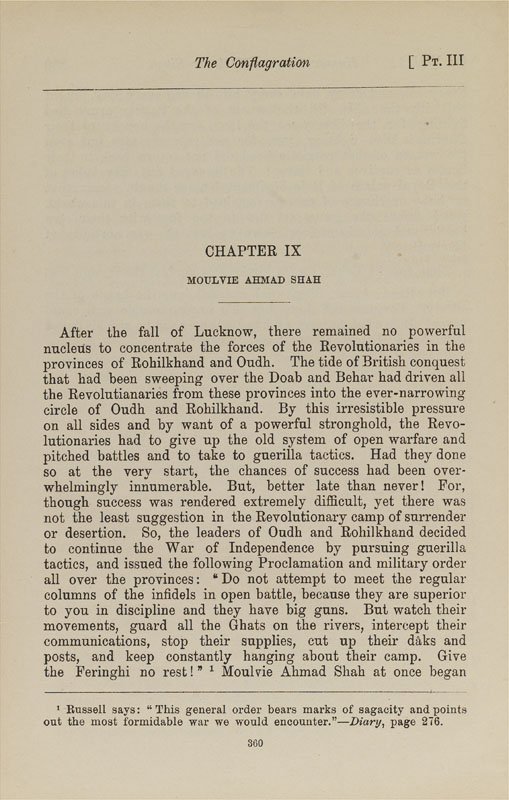The Conflagration
[ Pt. hi
CHAPTER IX
MOULVIE AHMAD SHAH
After the fall of Lucknow, there remained no powerful
nucleus to concentrate the forces of the Revolutionaries in the
provinces of Rohilkhand and Oudh. The tide of British conquest
that had been sweeping over the Doab and Behar had driven all
the Revolutianaries from these provinces into the ever-narrowing
circle of Oudh and Rohilkhand. By this irresistible pressure
on all sides and by want of a powerful stronghold, the Revo¬
lutionaries had to give up the old system of open warfare and
pitched battles and to take to guerilla tactics. Had they done
so at the very start, the chances of success had been over¬
whelmingly innumerable. But, better late than never! For,
though success was rendered extremely difficult, yet there was
not the least suggestion in the Revolutionary camp of surrender
or desertion. So, the leaders of Oudh and Rohilkhand decided
to continue the War of Independence by pursuing guerilla
tactics, and issued the following Proclamation and military order
all over the provinces: " Do not attempt to meet the regular
columns of the infidels in open battle, because they are superior
to you in discipline and they have big guns. But watch their
movements, guard all the Ghats on the rivers, intercept their
communications, stop their supplies, cut up their daks and
posts, and keep constantly hanging about their camp. Give
the Feringhi no rest!" ^ Moulvie Ahmad Shah at once began
1 Russell says: "This general order bears marks of sagacity and points
out the most formidable war we would encounter."—Diary, page 276.
360
|








